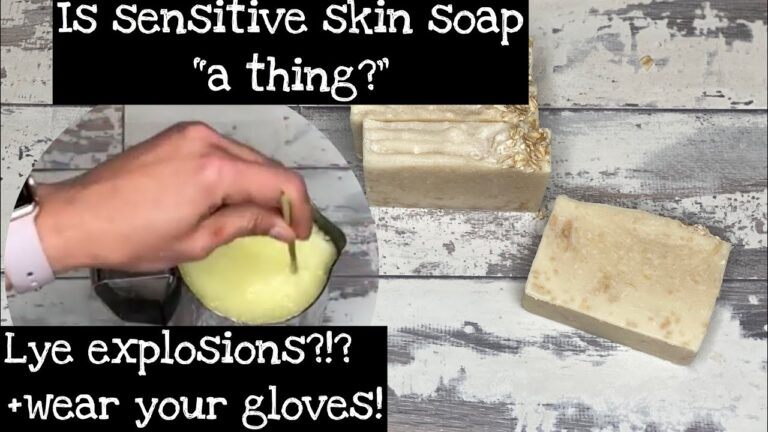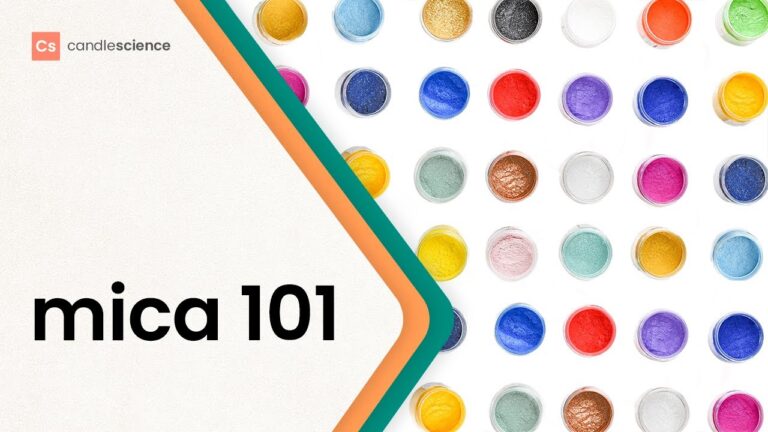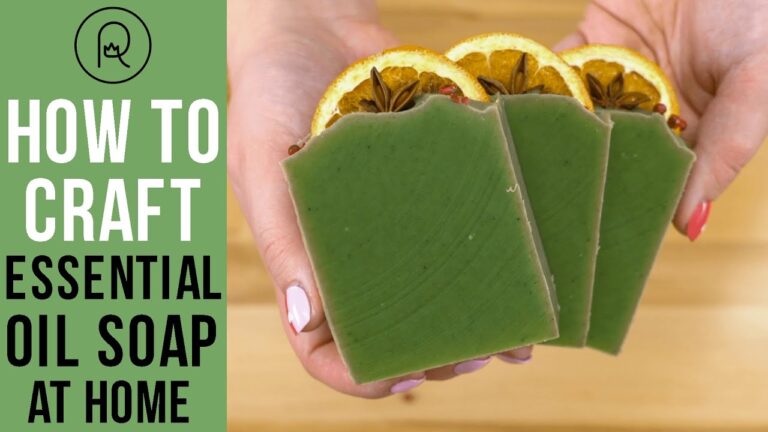In a world where allergies are on the rise, it’s crucial to ensure that even the most everyday products are safe for everyone to use. That’s why creating allergy-safe soap has become a top priority for many manufacturers. From avoiding common allergens like nuts and gluten, to carefully selecting gentle ingredients, these soaps are designed to cleanse without causing any adverse reactions. Join us as we explore the world of allergy-safe soap and discover how simple changes can make a big difference in your daily routine.
What type of soap is suitable for allergies?
For those with allergies, Castile soap is a great option due to its gentle and natural ingredients. Its hydrating properties from saponified oils make it perfect for sensitive skin, providing a moisturizing effect that can help alleviate irritation. When combined with sugar in products like Organic Sugar Soaps, Castile soap becomes an even more effective and soothing choice for those prone to allergies.
What causes allergies in soap?
Sodium Lauryl Sulfate (SLS) is a common ingredient in many soaps that can cause allergies. This detergent is often found in bar soaps and liquid hand soap, and can trigger allergic reactions in individuals with sensitive skin. It is important to be cautious when using products containing SLS, especially if you are prone to skin conditions like eczema or psoriasis.
Individuals with allergies or sensitive skin should avoid products containing Sodium Lauryl Sulfate (SLS). This detergent is known to be an irritant and can lead to various skin reactions, making it unsuitable for those with delicate skin. By opting for SLS-free alternatives, you can reduce the risk of experiencing allergic symptoms and protect your skin from potential irritation.
To prevent allergic reactions, it is crucial to read the labels of soap products carefully and avoid those containing Sodium Lauryl Sulfate (SLS). By being mindful of the ingredients in your skincare products, you can safeguard your skin against potential irritants and allergens. Choose gentle, SLS-free soaps to maintain healthy and happy skin.
How can a nut free soap be made?
If you’re looking to make a nut-free soap, the answer is simple: make your own olive oil soap. With just three ingredients- olive oil, lye, and water- you can easily create a safe and nut-free soap. You can find high-quality olive oil at Costco, ensuring that it is pure and free from any nut contaminants. Whether you choose to use the hot or cold process method, making your own nut-free soap is a straightforward and satisfying experience.
Creating a nut-free soap doesn’t have to be complicated. By making your own olive oil soap, you can confidently avoid any potential nut allergens. With just a few simple ingredients and the option of hot or cold process methods, you can easily craft a safe and effective nut-free soap. Plus, by sourcing your olive oil from a trusted supplier like Costco, you can ensure that your soap is made with pure and nut-free ingredients.
Crafting Soap for Allergies: Safe and Effective Formulation Techniques
Crafting soap for allergies requires careful consideration of ingredients to ensure a safe and effective formulation. By using gentle, natural ingredients such as shea butter, coconut oil, and essential oils, soap makers can create products that are suitable for even the most sensitive skin. Avoiding common allergens like artificial fragrances and harsh chemicals is key in catering to those with allergies. By prioritizing quality and purity in formulation techniques, soap makers can provide a soothing and nourishing experience for all users, especially those with allergies.
Allergy-Friendly Soap Making: A Comprehensive Guide for Sensitive Skin
In the world of soap making, catering to those with sensitive skin and allergies is crucial. This comprehensive guide is your go-to resource for creating allergy-friendly soaps that are gentle and safe for all skin types. From selecting the right ingredients to avoiding common allergens, you’ll learn everything you need to know to craft soaps that are both effective and skin-friendly.
Discover the art of allergy-friendly soap making with step-by-step instructions and expert tips. Whether you’re a beginner or an experienced soap maker, this guide will help you navigate the world of sensitive skin care with confidence. By using natural ingredients and avoiding harsh chemicals, you can create soaps that soothe and nourish even the most delicate skin.
Say goodbye to irritation and hello to healthy, glowing skin with the help of this comprehensive guide. With a focus on allergen-free ingredients and gentle formulations, you can enjoy the benefits of homemade soap without worrying about potential skin reactions. Make the switch to allergy-friendly soap making today and experience the difference it can make for your skin.
In a world where allergies are becoming increasingly prevalent, it is essential to prioritize the creation of allergy-safe products. By formulating soap with hypoallergenic ingredients and avoiding common allergens, manufacturers can ensure that individuals with sensitivities can enjoy a clean and refreshing bathing experience without the fear of an adverse reaction. Ultimately, the demand for allergy-safe soap reflects a growing awareness of the need for inclusive and accessible products, and paves the way for a more inclusive and considerate approach to personal care.



